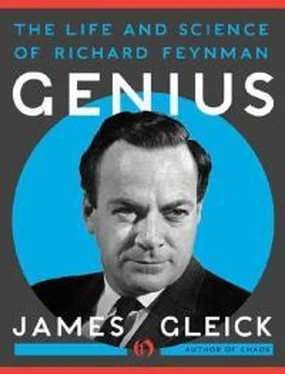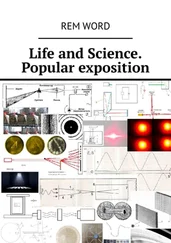By then the profession of science was expanding rapidly, counting not hundreds but tens of thousands of practitioners. Clearly most of their work, most of science, was ordinary—as Freeman Dyson put it, a business of
“honest craftsmen,” “solid work,” “col aborative efforts where to be reliable is more important than to be original.”
In modern times it became almost impossible to talk about the processes of scientific change without echoing Thomas S. Kuhn, whose Structure of Scientific Revolutions so thoroughly changed the discourse of historians of science.
Kuhn distinguished between normal science—problem solving, the fleshing out of existing frameworks, the unsurprising craft that occupies virtual y al working researchers—and revolutions, the vertiginous intel ectual upheavals through which knowledge lurches genuinely forward. Nothing in Kuhn’s scheme required individual genius to turn the crank of revolutions. Stil , it was Einstein’s relativity, Heisenberg’s uncertainty, Wegener’s continental drift. The new mythology of revolutions dovetailed neatly with the older mythology of genius—minds breaking with the standard methods and seeing the world new. Dyson’s kind of genius destroyed and delivered. Schwinger’s quantum electrodynamics and Feynman’s may have been mathematical y the same, but one was conservative and the other revolutionary. One extended an existing line of thought. The other broke with the past decisively enough to
mystify its intended audience. One represented an ending: a mathematical style doomed to grow fatal y overcomplex.
The other, for those wil ing to fol ow Feynman into a new style of visualization, served as a beginning. Feynman’s style was risky, even megalomaniacal. Reflecting later on what had happened, Dyson saw his own goals, like Schwinger’s, as conservative (“I accepted the orthodox view … I was looking for a neat set of equations …”) and Feynman’s as visionary: “He was searching for general principles that would be flexible enough so that he could adapt them to anything in the universe.”
Other ways of seeking the source of scientific creativity had appeared. It seemed a long way from such an inspirational, how-to view of discovery to the view of neuropsychologists looking for a substrate , refusing to speak merely about “mind.” Why had mind become such a contemptible word to neuropsychologists? Because they saw the term as a soft escape route, a deus ex machina for a scientist short on explanations. Feynman himself learned about neurons; he taught himself some brain anatomy when trying to understand color vision; but usual y he considered mind to be the level worth studying. Mind must be a sort of dynamical pattern, not so much founded in a neurological substrate as floating above it, independent of it. “So what is this mind of ours?” he remarked. “What are these atoms with consciousness?”
Last week’s potatoes! They can now remember what was going on in my mind a year ago—a mind which has long ago been replaced… . The atoms come into my brain, dance a dance, and then go out—
there are always new atoms, but always doing the same dance, remembering what the dance was yesterday.
Genius was not a word in his customary vocabulary. Like
many physicists he was wary of the term. Among scientists it became a kind of style violation, a faux pas suggesting greenhorn credulity, to use the word genius about a living col eague. Popular usage had cheapened the word. Almost anyone could be a genius for the duration of a magazine article. Briefly Stephen Hawking, a British cosmologist esteemed but not revered by his peers, developed a reputation among some nonscientists as Einstein’s heir to the mantle. For Hawking, who suffered from a progressively degenerative muscular disease, the image of genius was heightened by the drama of a formidable intel igence fighting to express itself within a withering body. Stil , in terms of raw bril iance and hard accomplishment, a few score of his professional col eagues felt that he was no more a genius than they.
In part, scientists avoided the word because they did not believe in the concept. In part, the same scientists avoided it because they believed al too wel , like Jews afraid to speak the name of Yahweh. It was general y safe to say only that Einstein had been a genius; after Einstein, perhaps Bohr, who had served as a guiding father figure during the formative era of quantum mechanics; after Bohr perhaps Dirac, perhaps Fermi, perhaps Bethe … Al these seemed to deserve the term. Yet Bethe, with no obvious embarrassment or false modesty, would quote Mark Kac’s faintly oxymoronic assessment that Bethe’s genius was
“ordinary,” by contrast to Feynman’s: “An ordinary genius is a fel ow that you and I would be just as good as, if we were only many times better.” You and I would be just as good
… Much of what passes for genius is mere excel ence, the difference a matter of degree. A col eague of Fermi’s said:
“Knowing what Fermi could do did not make me humble.
You just realize that some people are smarter than you are, that’s al . You can’t run as fast as some people or do mathematics as fast as Fermi.”
In the domains of criticism that fel under the spel of
structuralism and then deconstructionism, even this unmagical view of genius became suspect. Literary and music theory, and the history of science as wel , lost interest not only in the old-fashioned sports-fan approach—Homer versus Virgil—but also in the very idea of genius itself as a quality in the possession of certain historical figures.
Perhaps genius was an artifact of a culture’s psychology, a symptom of a particular form of hero worship. Reputations of greatness come and go, after al , propped up by the sociopolitical needs of an empowered sector of the community and then slapped away by a restructuring of the historical context. The music of Mozart strikes certain ears as evidence of genius, but it was not always so—critics of another time considered it prissy and bewigged—nor wil it always be. In the modern style, to ask about his genius is to ask the wrong question. Even to ask why he was “better”
than, say, Antonio Salieri would be the crudest of gaffes. A modern music theorist might, in his secret heart, carry an undeconstructed torch for Mozart, might feel the old damnably ineffable rapture; stil he understands that genius is a relic of outmoded romanticism. Mozart’s listeners are as inextricable a part of the magic as the observer is a part of the quantum-mechanical equation. Their interests and desires help form the context without which the music is no more than an abstract sequence of notes—or so the argument goes. Mozart’s genius, if it existed at al , was not a substance, not even a quality of mind, but a byplay, a give and take within a cultural context.
How strange, then, that cool y rational scientists should be the last serious scholars to believe not just in genius but in geniuses; to maintain a mental pantheon of heroes; and to bow, with Mark Kac and Freeman Dyson, before the magicians.
“Genius is the fire that lights itself,” someone had said.
Originality; imagination; the self-driving ability to set one’s mind free from the worn channels of tradition. Those who
tried to take Feynman’s measure always came back to originality. “He was the most original mind of his generation,” declared Dyson. The generation coming up behind him, with the advantage of hindsight, stil found nothing predictable in the paths of his thinking. If anything he seemed perversely and dangerously bent on disregarding standard methods. “I think if he had not been so quick people would have treated him as a bril iant quasi-crank, because he did spend a substantial amount of time going down what later turned out to be dead ends,” said Sidney Coleman, a theorist who first knew Feynman at Caltech in the fifties.
Читать дальше












